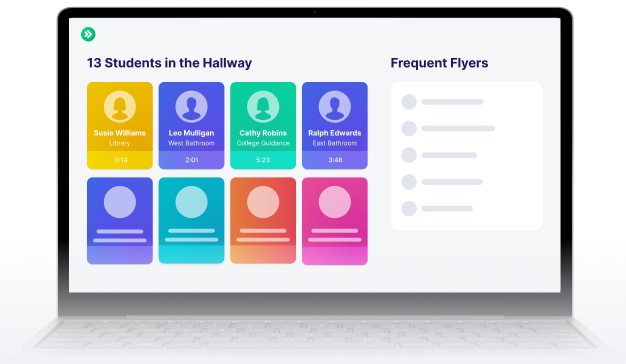In the News: Enhancing Safety in Schools Across Minnesota
Read the Story
SmartPass Co-Founders Listed on Forbes 30 Under 30
Read the Story

Karli Hetherington
.avif)

What if you could spot a student’s academic or behavioral struggles long before they received unfavorable grades or statements on their report card? As educators, we strive to meet every student’s unique learning needs, and being proactive is a requirement for successful intervention and support.
That’s where the Multi-Tiered System of Supports (MTSS) and Response to Intervention (RTI) frameworks come in. These intervention frameworks help schools identify and address student needs before they become more significant. Using advanced data tools to catch those subtle, early signs will be a game-changer.
MTSS is a comprehensive approach that covers academics, behavioral, and social-emotional support. Educators work together to create and identify potential needs in these areas and devise action plans that include multiple stakeholders. By looking at the whole child, MTSS ensures that educators have what they need to support students in all aspects of their school experience.
RTI uses a tiered structure that starts with strong, general instruction for all students. If a student needs more help, the support escalates in tiers, progressively becoming more targeted and intensive. The goal is simple—catch academic struggles early and step in quickly to give students the intervention supports they need to succeed.
Both MTSS and RTI focus on a key principle—early identification. The sooner you spot a problem, the easier it is to solve. In today’s schools, where success often depends on timely and precise interventions, having the correct data—and knowing how to use it—is more important than ever.
The real strength of MTSS and RTI is how they systematically identify and support struggling students. By layering support in tiers, these frameworks ensure students get the right help before falling behind and becoming disengaged in their learning. This approach makes interventions more effective and helps schools use resources wisely.
When we understand and use these frameworks, they can create a more equitable learning environment that meets the needs of every student—whether they need just a little help or a lot.
While MTSS and RTI are powerful tools, they aren’t without challenges. But, with awareness and understanding of these obstacles, we can leverage reliable data solutions to tackle them head-on.
Schools need reliable, real-time data that offers clear insights into student behavior and performance to catch issues early. Strong data solutions monitor trends, such as patterns of missed class time, which might signal underlying problems that need attention. Identifying these patterns early allows us to step in with targeted interventions before minor issues become significant barriers to success.
One major challenge in MTSS and RTI is collecting data from multiple sources—academic performance, attendance, behavior incidents, and more. The process can be time-consuming and complex, requiring the compilation of various data points and manually analyzing trends.
Using digitized data solutions, schools can integrate information from various sources into a single system—simplifying data-informed decision-making. For instance, combining data on hall pass usage with class schedules identifies patterns that show where a student might need extra support. This comprehensive view is vital to tailoring interventions that meet the unique needs of each student.
RTI and MTSS rely heavily on teamwork among teachers, administrators, and parents to plan and implement effective interventions. However, when there is no accessible, centralized data to share and discuss easily—collaboration is hindered. Team members need clear and timely data to align strategies or spot critical insights that could lead to better decision-making.
Boost communication and collaboration and ensure discussions become more focused and productive using a centralized data platform. A unified view of detailed student information, like student attendance and behavior reports, leads to better-aligned intervention strategies. These data-driven insights lay a solid foundation for productive conversations—allowing everyone to understand the student’s needs and progress.
The success of MTSS and RTI frameworks relies on continuously monitoring the effectiveness of interventions. Teachers need up-to-date, accurate data to monitor student progress in real-time and adjust strategies to ensure interventions work as intended.
Real-time data supports timely adjustments that significantly improve student outcomes and ensure interventions stay effective and responsive to evolving needs.
Identifying the challenges within MTSS and RTI frameworks highlights the critical need for solid and reliable data. Robust data is a driving force for action. When every minute of learning counts, the ability to quickly and accurately detect and address student needs makes all the difference in helping them succeed.
The SmartPass Missed Class Time student snapshot provides critical data for effective early intervention and ongoing student support, strengthening the MTSS and RTI frameworks.
Additional Key Benefits

.jpg)

